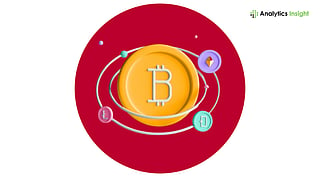
The top crypto exchanges in Japan for 2025 are regulated under Japanese law and offer support for JPY fiat currency.
Features to look for include credibility/registration, low fees, supported assets, and a user-friendly interface.
Even in a mature market like Japan, comparing platforms on fees, features, and trust matters.
Japan’s cryptocurrency ecosystem is dynamic and continuously growing. It allows traders to utilize regulated exchanges, enhance their understanding of digital assets, and benefit from flexible fiat systems. The Japanese government’s supportive stance on regulation helps maintain transparency and investor confidence. This balanced environment strengthens the island nation’s role as a leader in global crypto adoption.
The overwhelming majority of these traders, approximately nineteen million cryptocurrency traders, alongside the Japanese market, makes it absolutely critical to select an exchange that not only accepts Yen deposits but also adheres to the Financial Services Agency (FSA) regulations and offers strong features.
The following exchanges are currently among the top crypto players in Japan.
One of the most trusted exchanges in Japan, operating since its inception, is bitFlyer. Founded in 2014 and based in Tokyo, the company manages assets exceeding one trillion yen. The services offered include JPY deposits, spot and margin trading, and an official license from Japanese regulators, allowing all users (whether beginners or advanced) to enjoy the platform's benefits.
Despite being a domestic exchange, Coincheck has the widest crypto app adoption and an easy user interface. The app for downloading Coins is consistently ranked as the best crypto app in Japan and is marketed by the Monex Group. The exchange offers user-friendly interfaces, a JPY on-ramp, and a wide variety of assets, thus making it perfect for new subscribers to the Japanese cryptocurrency market.
Also read: Best Crypto Startups in 2025
Binance Japan is the local version of the global platform that accepts JPY deposits, offers a wide variety of tokens and trading pairs, and charges competitive fees (spot fees start at around 0.1%). An advanced trader enjoys having access to international depth and free markets. Binance Japan is the go-to platform for compliance with Japanese regulations.
OKX is another trading platform that has gained popularity among Japanese traders, thanks to its advanced trading features, extensive asset selection, and staking/earning options. If a trader is seeking flexibility, exposure to multiple assets, and birth opportunities, then OKX should definitely be on the list of exchanges to explore.
Also read: Best Modular Blockchain Architecture in 2025
Bitbank is mainly recognized for its domestic Japanese volume in altcoins and its excellent trading tools. It also supports margin trading and has a robust order-book infrastructure, characteristics that attract advanced traders to the Japan-based platform.
Japan supports a wide range of crypto exchanges, sparking increased competition. Some of them are beginner-friendly, while others cater to advanced traders. If regulation, local fiat support, and brand trust are the most critical factors, then BitFlyer and Coincheck are the ones to follow.
For a wider selection of tokens and global features, Binance Japan and OKX are the best options. More advanced traders focusing on domestic volume and tools will find Bitbank suitable. Keep in mind to continually evaluate platforms based on fees, asset selection, regulatory compliance, and usability before actually getting on.
Are crypto exchanges in Japan regulated?
All exchanges are expected to register with the FSA and adhere to AML/KYC and custody regulations.
Can I deposit Japanese Yen on these exchanges?
To trade on the platforms mentioned earlier, yes, one must make deposits in JPY fiat.
What should I check when choosing an exchange in Japan?
Look for JPY support, registration/license, fees, asset selection, and UI safety history.
Are trading fees in Japan higher than in other regions?
They are different for sure, but many platforms are competitive in fees (for example, 0.1%), especially for spot trading.
Is altcoin trading popular on Japanese exchanges in 2025?
Yes, they are not common in the domestic market, but they are still closely connected to the global market, with altcoins such as those besides Bitcoin and Ethereum.
